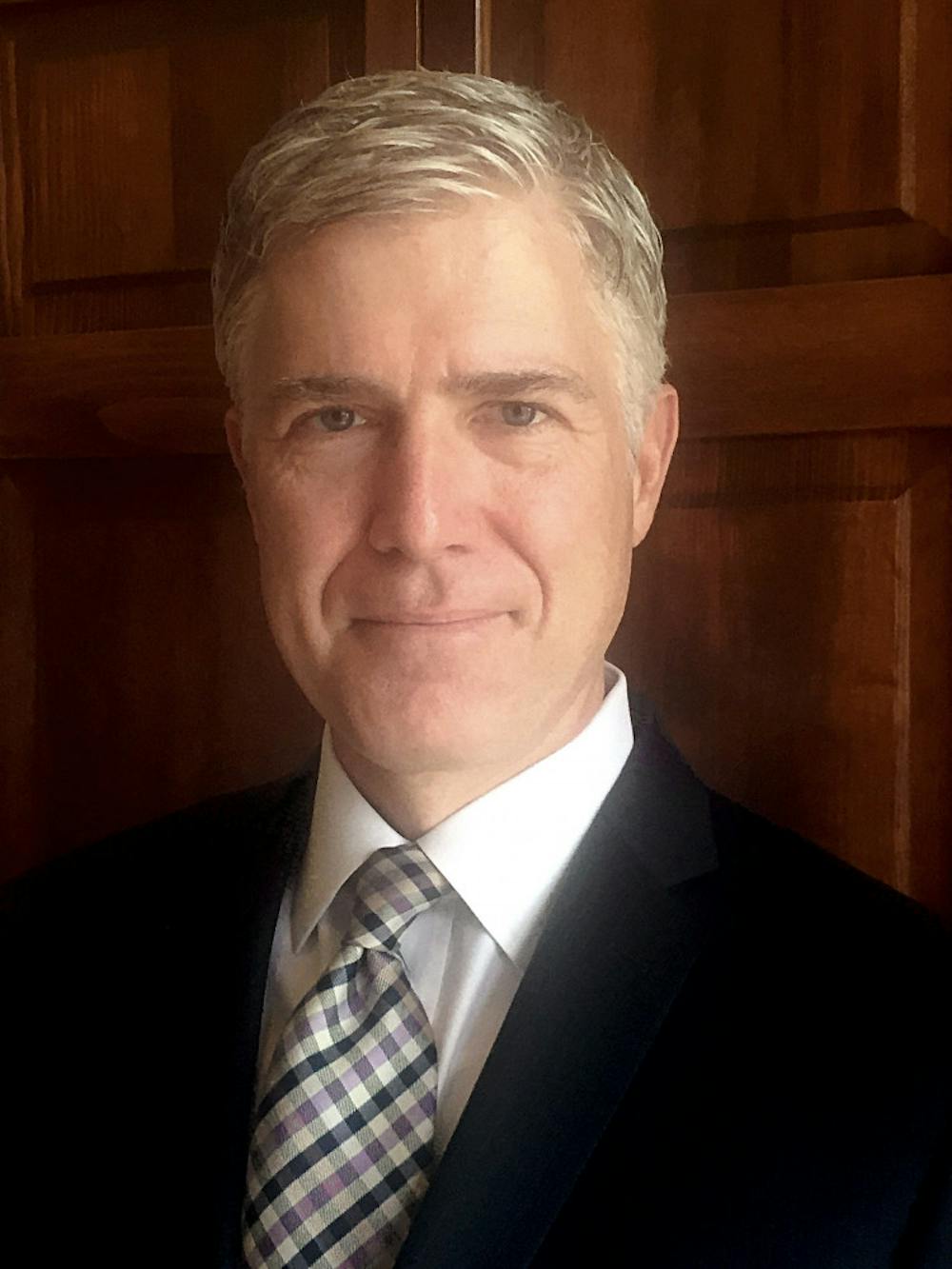On Jan. 31, President Donald Trump nominated Federal Appeals Court Judge Neil Gorsuch to the Supreme Court seat left open by the death of Antonin Scalia a year ago. Seeing as Gorsuch is a new figure on the national stage, this article sets out to answer a few questions about who he is, what his record is, and what his beliefs are.
At 49 years old, Gorsuch has an extensive judicial resume. He graduated from Columbia, Harvard (where he was classmates with former President Barack Obama) and Oxford (where he was a Marshall Scholar), clerked for several prominent judges, including two Supreme Court justices, Byron White and Anthony Kennedy, and Judge David Sentelle of the U.S. Court of Appeals for the District of Columbia Circuit. He was a high-ranking official in George W. Bush’s Justice Department before then-President Bush appointed him to the 10th Circuit Court of Appeals in Colorado on May 10, 2006, on which he still serves.
In his personal life he is an outdoorsman who enjoys fishing, hunting and skiing, drives a gold-colored Mercedes convertible (often with the top down), and lives on a ranch with his wife and two teenage daughters (they have some horses and chickens as well as a barn cat). He is also a Protestant, and would be the first Protestant on the court since Justice John Paul Stevens retired in 2010.
Ideologically he is conservative; he supports religious freedom, is against assisted suicide, and is unforgiving when it comes to the death penalty. But as a judge, he is a strict textualist, following the Constitution to the letter, much like his would-be predecessor Antonin Scalia. From this perspective, some of his past decisions are easy to explain; he has not helped people who have appealed the death penalty because, due to the Antiterrorism and Effective Death Penalty Act of the 1990s, there are very few cases where the penalty could reasonably be revoked. It is less clear if textualism was the reason he chose to side with Hobby Lobby and other entities claiming religious freedom; he has repeatedly said that the contraception requirements in the Affordable Care Act have burdened people’s religious exercise under the Religious Freedom Restoration Act (RFRA) of 1993.
He shares many similarities with Scalia, which may have contributed to his nomination. When it comes to criminal law, he believes the law should be written clearly, and interpreted in favor of the defendant if possible, even to the extent that it hurts the government prosecution; he thinks people should be able to freely express their religion in public spaces; he is wary of deferring to legislative history; and he dislikes the dormant commerce clause, which is an economic provision that does not actually exist in the Constitution but has been used in several cases. He is also known to be a sharp legal thinker and a (relatively) readable and entertaining legal writer, something that Scalia was also known for.
Among his peers, he has a reputation for being friendly, easy to work with, and averse to twisting the words of the law to his own ideological advantage. Republicans and Democrats alike see him as an eminently qualified and respectable judge who would do the job well. However, Democrats are not going to be quick to forget the treatment received by their judge, Merrick Garland, nominated by former President Barack Obama and ignored by Republicans for almost a year – they didn’t even give him a hearing. Whether Democrats choose to treat Gorsuch the same way remains to be seen.





